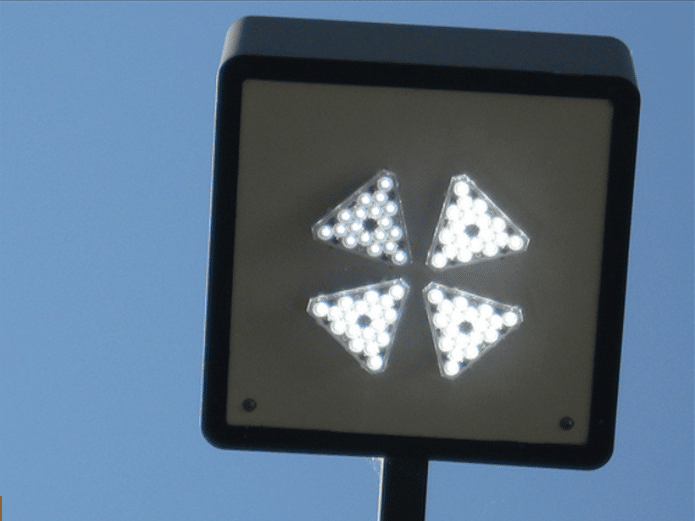By Guest Contributor Andrea Vollf
The famous phrase used by Benjamin Franklin in Advice to a Young Tradesman, “Time is Money”, has never been as accurate as it is in today’s world. While we watch all the changes that are happening in the economy worldwide, causing people to lose their jobs and homes, technology continues to evolve and new products that can save us time and money keep popping on a daily basis.
In the commercial arena, we are noticing a lot of improvements in the energy sector, especially when it comes to lighting as it represents up to 40% of a typical building’s overall energy costs. Building owners, facility managers, even outside contractors performing custodial tasks, have one goal in mind: reduce energy costs without compromising the overall performance of the building. If you are looking for a better way to save time and money with repair and maintenance costs, those are the things you should be focusing on:
- Adopt a more energy efficient lighting system— Since governments around the world have passed measures to phase out incandescent light bulbs for general lighting in favor of more energy-efficient lighting alternatives, the market started focusing more on halogen, CFL, and LED lighting solutions. While compact fluorescent lighting can save up to 75% of energy consumption when compared to incandescent lighting, you can bring your energy costs down even further by replacing your current CFL lights with LED (Light Emitting Diodes) bulbs. For a better understanding of how much you can save by replacing your current lighting with LED, take a look at this calculator provided by livingled. When compared to CFL, LED lights yield several advantages: they contain no mercury, they can turn on instantly at any temperature, they have a long lifespan that is unaffected by cycling on and off, and they can emit unsaturated colored light without need of filters—as well as shine uni-directionally without reflectors. From the custodial point of view, LED lighting will save you money on both product replacement and labor.
<sp> - Create a zone controlled lighting system — More and more companies are adopting a zone controlled lighting system, many times assisted by motion sensors. Commercial buildings, schools, data centers, and any other facility that doesn’t have employees working 24 hours a day should take advantage of these systems. Instead of having to illuminate a hallway completely, you can have it lit gradually as people walk through with the use of motion sensors. Parts of the building that used less frequently will remain unlit, contributing to lower energy costs as well as reducing the aggregated costs for maintenance and repairs.
<sp> - Install motion sensors — How many times have you walked into a room and all lights were left turned on by the employees that have left the space hours ago? By installing motion sensors in areas that are not fully occupied throughout the day, such as hallways, restrooms, conference rooms, and stock rooms, you can bring your energy cost down in up to 90%. Plus it will save you time (and labor) as you don’t have to go room by room to turn the lights off.
<sp> - Make most of daylight sensors — Install daylight controls or sensors within 15 feet of the windows or skylights in all regularly occupied spaces to help you reduce the amount of energy used throughout the day.
VK Sustainable Concepts’ Principal Andrea Vollf, LEED AP ID+C, is a registered interior designer and sustainability professional with over fifteen years of experience in the interior design and marketing industries. Recently nominated by the Daily Herald Business Ledger as one of the Influential Women in Business 2012 and with articles published across US and Canada since 2009, Ms. Vollf is an active member of the U.S. Green Building Council – Illinois Chapter, with in‐depth knowledge of all aspects of Sustainability – Social, Environmental and Economic. Ms. Vollf is also one of the co-founders of NEW – Networking of Entrepreneurial Women – a networking group that is committed to supporting and promoting entrepreneurial women living and working in the Chicago suburban area. Connect with Andrea on Google+, Twitter, LinkedIn, and Pinterest.

